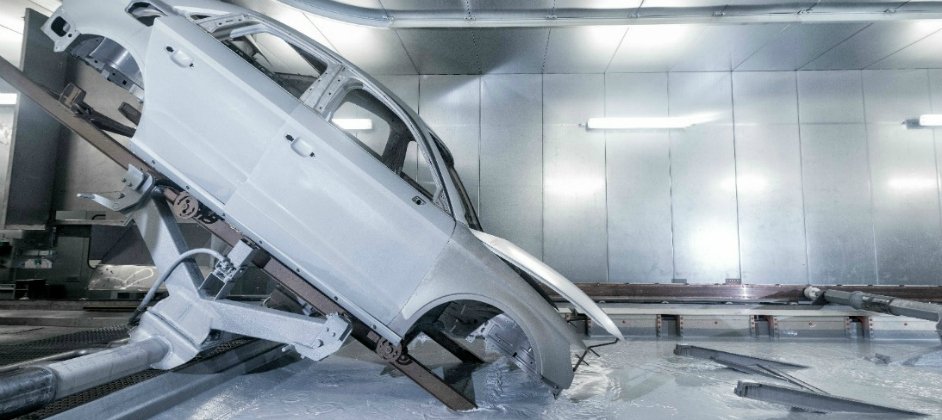IT COULD STOPPED ALL NEW INVESTMENT
GOVERNMENT SHOULD REVIEW OTHERWISE ADP 2016-21 MAY BE A TOTAL FAILURE
The Government of Prime Minister Muhammad Nawaz Sharif, decided in October 2013, to set up a Committee to formulate an Automotive Development Policy (ADP) that can provide a solid framework to strengthen the sector further, laying down a comprehensive, well-defined roadmap that aims essentially to lower the entry threshold for New Investment, create enabling tariff structure for development of the Automotive Sector, rationalize automobile import policy.
The Policy has been formulated after due consultation process with all import stakeholders including Pakistan Automobile Manufacturer Association, Pakistan Association of Automotive Parts and Accessories Manufacturers, Pakistan Association of Spare Parts Importers and dealers etc etc. Most importantly, the consumers’ interest was also the main consideration.
Government opinion is that the motor cycle industry has tapped market potential, while local car assemblers have failed despite enjoying several incentives like duty exemption. These assemblers have not even turned into manufacturers due to their failure in completing the localization programme. This is really the hard fact.
Engineering Development Board which is a part of federal ministry of industry and production and Board of Investment jointly announced the Auto Development Policy 2016-21, on 2nd June 2016. This policy is warmly welcomed by all relevant quarters. However old players of automobile industry who were enjoying monopolized situation in the market and pocketing huge some of money in shape of premium on every unit were not happy, rather annoyed. It may be noted that premium money is not taxable, it falls purely in the category of black money. Now this lobby is active and want that ADP 2016-21 could not become successful. They have their own traditional techniques to dilute the advantages and benefits of new policy.
The basic objective for announcement of five year policy is to ensure the new investors that this policy will consistent for 5 years and no change shall be made in the policy during this five years. So investor shall be satisfied that his investment is risk free. Unfortunately the Government has made a great change / amendment in this policy within the 25 days after the announcement, through SRO 483 dated 29th June, 2016. Now it is compulsory that every light commercial vehicle assembler has to establish ED Coat Painting system in his upcoming auto assembly plant. This is a new conditionality which was not mentioned at the time of announcement of the policy. This one word change, makes a very very negative impact upon the new investor / assembler. The cost / investment of existing conventional painting system is in between 2 and 3 crore rupees, where as the cost of ED coating painting system is around 30 to 40 crore rupees and every month running cost is around 1 crore to 2 crore rupees.
Light commercial vehicles plays a pivotal role in progress of economy. They are suitable for inter city transport of goods. They are the main tool to transport agriculture goods from farms to main roads. They also use for the transportation of passenger in country side and in small towns. These are utility vehicles, do not need extraordinary cosmetics. Their main function is loading of goods. So customer wants powerful engine and sturdy chassis. He is not more conscious about the looks and cosmetics of the vehicle. ED coating painting system mainly enhance the looks and cosmetic value of vehicle. It may necessary for the car but for light commercial vehicles it is not very much necessary.
Furthermore conventional primer painting system is largely acceptable by the Pakistani customers and even Heavy duty trucks are still allowed to do conventional primer painting system. This also creates an anomaly into the policy.
If we analyze the economic viability of the upcoming project in reference to sales / production volume and payback period of investment. One can easily understand the difference of 40 crore and 2 crore rupees. So if a new comer / investor install ED coating painting system the project will become totally unviable.
In the light of above mentioned facts, it is very much clear that new investment in automobile sector shall be totally stopped and government hopes and objectives shall not be materialized. As a result situation of unemployment will not improve. The old players of automobile industries shall maintained their monopolized stature. Customers will suffer immensely and forced to pay huge premium money as usual. Automobile sector experts has the opinion that Government policies should focus on technology transfer. It may be noted that still auto industry of Pakistan is restricted to the assembly work. Not a single company is producing the components of the following critical and functional parts.
a) Engine
b) Transmission
c) Gear Box
d) Axles
e) Ignition System
f) Clutch System
g) Braking System
h) Motors etc
i) Wind Serene & Door Glasses
Japanese companies are working in Pakistan since 90’s but they are doing only welding, painting and assembly. Old players who have total grip on automobile industry and enjoying monopoly wish to continue this situation. They want to keep entangle new players in the same area i.e. welding, painting and assembly functions. Government authorities may review this unnecessary and damaging amendment in the policy and allowed the new players in this segment to establish a conventional primer painting system as per existing procedure.
Exclusive review by Anwar Iqbal, published in Monthly AutoMark Magazine’s October-2016 printed edition
